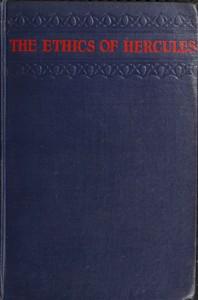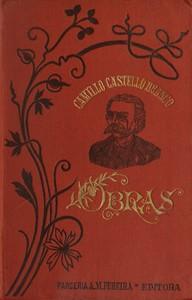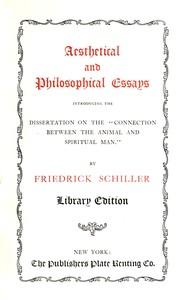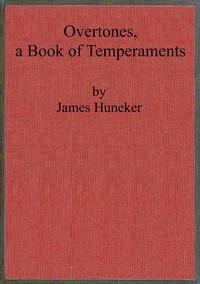|
|
Read this ebook for free! No credit card needed, absolutely nothing to pay.Words: 24793 in 8 pages
This is an ebook sharing website. You can read the uploaded ebooks for free here. No credit cards needed, nothing to pay. If you want to own a digital copy of the ebook, or want to read offline with your favorite ebook-reader, then you can choose to buy and download the ebook.

: The ethics of Hercules by Givler Robert Chenault - Ethics; Psychophysiology@FreeBooksThu 08 Jun, 2023 ghts"; those claims and interests the establishment and protection of which may be secured by force and even violence negated only with respect to some particular cases of "right" by Examples 8, 9, and 17. Class F. Moral "rights" negated by Examples 7, 8, 9, 10, 11, 13, 16, and 17; but only in the same way that moral "right" is incompatible with legal "right." Class G. Unspecified and unrestricted liberties and privileges negated restrictively by the single example of No. 18. Class H. That which is most convenient, desirable, or favorable; conforming to one's wish or desire; to be preferred, etc., negated by Examples 2, 4, 6, 9, 10, 12, 13, 14, and 15. "Right" signifying very, in great degree No antonym All this has an important bearing on the meaning of the word "wrong." We saw that this word has only 18 significations, as compared with the 114 significations of "right." We also saw that it is only partially antagonistic to the concept to which it is commonly opposed. And it has further been revealed that our customary logic makes a single exception the grounds for an assumption of contradiction. On the basis of these observations, then, we may declare that "wrong" refers to some very special behavior situations where human energies cannot be controlled and directed as desired, where the employment of technique to further man's purposes has been hindered, and where "good" cannot be obtained. This, however, is not equivalent to saying that "wrong" is the antonym, the unqualified contradictory, of "right," any more than red is the opposite of blue, or coffee the opposite of tea. A question of considerable importance both in physiology and in ethics arises when we ask why the concepts "right" and "good" have so many more significations than do "wrong," "evil," and "bad." We have already emphasized the relation between speech and conduct sufficiently to indicate that upon the answer to such a question something essential for a technique in ethics depends. A word can have a great number of significations only by its being employed in a great variety of situations, and this means that very many different specific responses are implicit in the use of our most comprehensive concepts. Contrariwise, with a word of fewer significations, fewer such responses are implied. Now we have already cited the fact that "good" and "right" refer primarily to outgoing reactions, and that "wrong," "evil," and "bad" signify withdrawing reactions. Are we, then, summarily to conclude, without any further knowledge of the body's mechanisms, that since we seem to use our extensor system in a more diversified manner than our flexor system, the muscular equipment of the former is superior to that of the latter? If we do so conclude, we shall be in error. It is the opposite that is nearer the truth. Both larger and stronger, and, on the whole, more easily educated muscles exist in the flexor than in the extensor system. The innumerable capacities of the half-closed hand are representative of this superiority. Still more important, however, is the fact that the flexor system is practically the dominant system in the human body. The hinges of the knee, hip, shoulder, elbow, wrist, and jaw are more often, more strongly, and more readily closed maximally than they are expanded to the full. Besides, occupational postures are almost universally crystallized withdrawing responses. Where, then, shall we look for the answer to our question? We shall look directly at the behavior of the organism as a whole. While it is admitted that flexor actions are stronger, more numerous, and more universal than are extensor reactions, yet when we consider how the flexor reactions dispose the body toward its environment, we shall at once have light on this curious problem. For the effect of such reactions is to cut off the body from a large part of the environment, and consequently to reduce the possibility of effective contact with it. Stooping, crouching, bowing the head, and lowering the eye are significant examples of flexor responses which reduce the span of perception, while every man knows that activities of the opposite character allow a greater number of stimuli to come in contact with his eyes and his ears. Consequently, even though flexor actions will always be in the majority, extensor actions have the advantage of providing the conditions under which a greater variety of stimuli can be presented to the organism. This is the same as saying that the open-minded person necessarily becomes discriminative and exploratory, while the opposite type is left to stew in his own juice. The flexor type of man is, indeed, in the end reduced to contacts with his own body, while to the extensor type of man his body is only one of the many sources of motivation, the rest being in the external environment. It seems thus to be primarily due to the very mechanics of the organism that the words "right" and "good" have a greater variety of significations than have the words "bad," "evil," and "wrong." Free books android app tbrJar TBR JAR Read Free books online gutenberg More posts by @FreeBooks
|
Terms of Use Stock Market News! © gutenberg.org.in2025 All Rights reserved.






